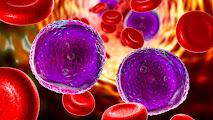What is leukemia?
Leukemia is a term for malignant growths of the platelets. Leukemia begins in blood-shaping tissues like the bone marrow. Your bone marrow makes the cells which will form into white platelets, red platelets, and platelets. Each kind of cell has an alternate work:
- White platelets help your body battle disease
- Red platelets convey oxygen from your lungs to your tissues and organs
- Platelets assist with shaping clusters to quit dying
At the point when you have leukemia, your bone marrow makes huge quantities of strange cells. This issue frequently occurs with white platelets. These strange cells develop in your bone marrow and blood. They swarm out the solid platelets and make it hard for your cells and blood to take care of their responsibilities, Therefore many pharma consulting companies advised to transplant bone marrow.
What are the category of leukemia?
There are various sorts of leukemia. Which kind of leukemia you have relies upon the sort of platelet that becomes malignant growth and regardless of whether it develops rapidly or gradually.
The kind of platelet could be:
- Lymphocytes, a kind of white platelet
- Myeloid cells, juvenile cells that become white platelets, red platelets, or platelets
The various kinds can develop rapidly or gradually:
- Intense leukemia is quickly developing. It ordinarily deteriorates rapidly on the off chance that it's not treated.
- Persistent leukemia is slow developing. It ordinarily deteriorates throughout a more drawn out timeframe.
The principle category of leukemia are:
- Intense lymphocytic leukemia (ALL), which is the most widely recognized sort of disease in kids. It can likewise influence grown-ups.
- Intense myeloid leukemia (AML), which is more normal in more established grown-ups however can likewise influence kids
- Persistent lymphocytic leukemia (CLL), which is quite possibly the most well-known kinds of leukemia in adult. It frequently happens during or later middle age.
- Ongoing myeloid leukemia (CML), which for the most part happens in grown-ups during or later middle age
What causes leukemia?
Leukemia happens when there are changes in the hereditary material (DNA) in bone marrow cells. The reason for these hereditary changes is obscure.
Who is in danger for leukemia?
For the particular kinds, there are various variables which can raise your danger of getting that sort. In general, your danger of leukemia goes up as you age. It is generally normal over age 60, Early access program designed by the government of India and many countries worldwide for patient who have exhausted the treatment options available.
What are the indications of leukemia?
A portion of the indications of leukemia might include:
- Feeling tired
- Fever or night sweats
- Simple swelling or dying
- Weight reduction or loss of hunger
- Petechiae, which are minuscule red spots under the skin. They are brought about by dying.
Other leukemia side effects can be not the same as type to type. Chromic leukemia may not cause indications from the get go.
How is leukemia analyzed?
Your medical services supplier might utilize many apparatuses to analyze leukemia:
- An actual test
- A clinical history
- Blood tests, for example, a total blood count (CBC)
- Bone marrow tests. There are two fundamental sorts - bone marrow yearning and bone marrow biopsy. The two tests include eliminating an example of bone marrow and bone. The examples are shipped off a lab for testing.
- Hereditary tests to search for quality and chromosome changes
When the supplier makes a finding, there might be extra tests to see whether the disease has spread. These incorporate imaging tests and a lumbar cut, which is a system to gather and test cerebrospinal liquid (CSF).
What are the medicines for leukemia?
The medicines for leukemia rely upon which type you have, how extreme the leukemia is, your age, your general wellbeing, and different elements. Expanded access program provides imported medicines to help patients, Some potential medicines may include:
- Chemotherapy
- Radiation treatment
- Chemotherapy with undifferentiated organism relocate
- Designated treatment, which uses drugs or different substances that assault explicit disease cells with less mischief to typical cells

No comments:
Post a Comment